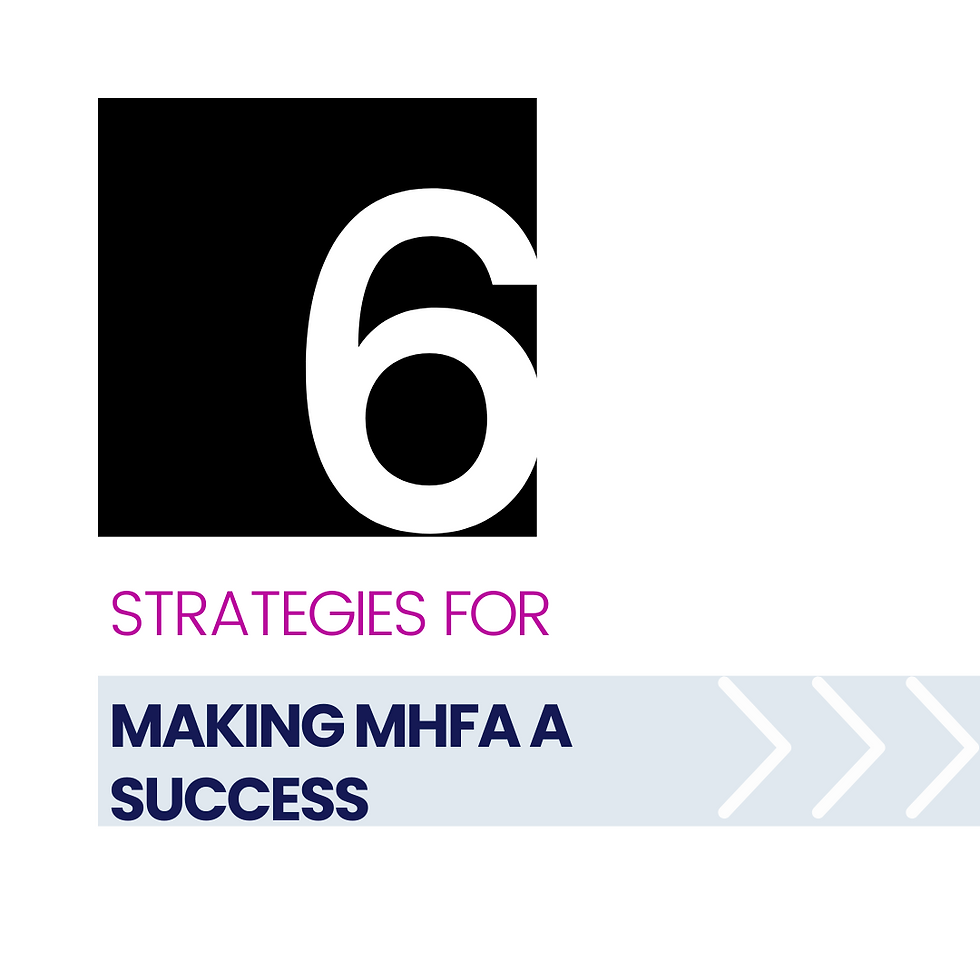Unlocking Potential: Taming the Body's Stress Response
- Joanna Buckland

- Oct 11, 2023
- 3 min read
Updated: Sep 17, 2024
Written By Joanna Buckland.

Have you ever felt like you're losing your memory, unable to think straight, or had unexplained psychical symptoms? If medical tests have ruled out physical causes, you may be experiencing the long-term impacts of what psychologist Daniel Goleman coined as an ‘amygdala hijack’. Let's delve into this fascinating phenomenon.
Up to 95% of our daily activities are automated, allowing our conscious minds to focus on specific tasks [1]. Numerous background processes occur without our awareness, and a significant player in helping us respond to daily challenges linked to stress is the amygdala. This small but powerful brain region acts as an internal alarm system, rapidly responding to perceived threats and initiating a cascade of reactions - all without our conscious control. When the amygdala detects danger, it presses the ‘alarm button’, triggering physiological responses. This is where things get interesting.
Stress Zoning.
Hans Selye (1907- 1982) first wrote about stress in the 1930s as a universal reaction to challenges, including threats, calling it the 'stress response.' He explained that stress can be beneficial, helping us adapt and cope, but excessive stress without rest can lead to health problems and impact performance [2].
Think of stress as existing along a spectrum that ranges from green to amber to red. In the 'green zone', you're calm, with no perceived threats, allowing everyday activities to proceed smoothly. As stress levels increase, we move into the 'amber zone', where our body begins to prepare for potential challenges, signalling that caution is needed. In the 'red zone', our body is in a heightened state of alertness, fully prepared to confront or avoid danger, activating its defence mechanisms to protect us.
In the red zone, our body’s main objective is to supply oxygenated, glucose-rich blood to our muscles, preparing us for fight or run away from danger. From the brain’s perspective, it’s helpful to prioritise the defence system by downgrading others not deemed as critical in an emergency [2]. This can include memory, digestion, and other executive functioning parts, like analytical thinking and long-term planning, that help us perform at work.

This high-energy state is unlikely to have a long-lasting effect if we have the time to rest and recover after the perceived threat has been neutralised. If we push beyond signs that we need to recharge, our brain's threat response can become overly active and impair our stress-regulation system. Consequently, our energy reserves are drained to the point where our body struggles to perform normal, healthy functions that support wellbeing and performance and can lead to burnout.

This is the essence of an amygdala hijack, and it's more common than you might think. The temporary loss of brain power rerouted from our executive functions to emergency responses has been likened to losing 10-15 IQ points. And here's the catch: the alarm centre in our brain cannot distinguish between stress caused by being attacked by an animal and work deadlines. It's all the same chemical information, just in different quantities.
Taking the time to prioritise activities to reduce stress helps restore balance, helps us avoid an amygdala hijack, enables us to perform at our best, and supports wellbeing and health.
How we can help
Over the last six years, we have honed effective stress-reduction strategies based on the latest research, and we've put them to the test. Not only do we use these techniques within our teams, but we coach people from a variety of backgrounds to utilise strategies that improve health and wellbeing as well as enhance performance. If you are affected by the topics explored in this article, please get in touch with us; we offer one-to-one sessions, stress and burnout workshops for organisations as well as training teams in Adult Mental Health First Aid.
Strategic Therapy
From stress caused by new job imposter syndrome to workplace pressure, and burnout to relationship issues, breakups, anxiety, and depression, our comprehensive counselling service covers a wide range of topics essential for stress reduction, helping you to stay online and perform at your best.
https://www.researchgate.net/publication/365211107_The_Power_of_the_Subconscious_Mind
McEwen BS. Physiology and neurobiology of stress and adaptation: central role of the brain. Physiol Rev. 2007 Jul;87(3):873-904. doi: 10.1152/physrev.00041.2006. PMID: 17615391.
Boyle LM. A neuroplasticity hypothesis of chronic stress in the basolateral amygdala. Yale J Biol Med 2013; 86: 117–125.
Shirom A. Burnout and health: expanding our knowledge. Stress and Health 2009; 25: 281–285.





Managing stress is one of the most important aspects of maintaining overall health, and it goes beyond simply relaxing or taking breaks. The article Unlocking Potential: Taming the Body's Stress Response highlights practical strategies to regulate how our body reacts to stress, which can significantly improve both mental and physical well-being. For those who want to dive even deeper into optimizing their body’s natural resilience, I highly recommend checking out https://ways2well.com/health/beyond-stem-cells. This resource explores advanced approaches to cellular health and recovery, going beyond traditional methods. It explains how supporting your body at a cellular level can enhance stress adaptation, improve energy, and even support tissue regeneration. By combining the practical stress-management tips from the article with the insights from the site,…